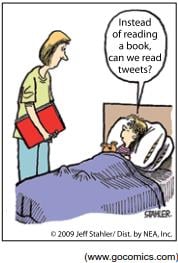Questões de Vestibular
Comentadas sobre tradução | translation em inglês
Foram encontradas 31 questões
Elderly flight passenger throws coins into engine for ‘luck’, delays take-off for hours
China Southern Airlines Flight 380 was held up at the Shanghai Pudong International Airport after an elderly woman passenger caused a disruption, according to the airline’s official WeChat account. An investigation into the incident is under way.
Passengers boarding the flight reportedly saw an elderly woman throwing coins at the engine for “blessings” from the middle of the boarding staircase and alerted the crew.
Ground staff said the woman, who appeared to be about 80 and had limited mobility, was accompanied by her husband, daughter and son-in-law.
The captain was quoted as saying the metal, if sucked up
by the engine, could have caused serious damage,
including failure.
The flight was later given a green light and took off at 5.52pm, more than five hours late. It is scheduled to arrive in Guangzhou at 8.14pm.
(Adaptado de Sarah Zheng, Elderly flight passenger throws coins into engine for ‘luck’, delays take-off for hours. South China Morning Post, 27/06/2017. Disponível em http://www.scmp.com/news/china/society/article/2100242/elderlyflight-passenger-throws-coins-engine-luck-delays-take. Acessado em 10/07/2017.)
O que é correto afirmar sobre o incidente relatado na
notícia anterior?

Entre as inadequações no uso do inglês observadas nas
figuras 1 e 2, podemos citar:
When does the brain work best?
The peak times and ages for learning

What’s your ideal time of the day for brain performance? Surprisingly, the answer to this isn’t as simple as being a morning or a night person. New research has shown that certain times of the day are best for completing specific tasks, and listening to your body’s natural clock may help you to accomplish more in 24 hours.
Science suggests that the best time for our natural peak productivity is late morning. Our body temperatures start to rise just before we wake up in the morning and continue to increase through midday, Steve Kay, a professor of molecular and computational biology at the University of Southern California told The Wall Street Journal. This gradual increase in body temperature means that our working memory, alertness, and concentration also gradually improve, peaking at about mid morning. Our alertness tends to dip after this point, but one study suggested that midday fatigue may actually boost our creative abilities. For a 2011 study, 428 students were asked to solve a series of two types of problems, requiring either analytical or novel thinking. Results showed that their performance on the second type was best at non-peak times of day when they were tired.
As for the age where our brains are at peak condition, science has long held that fluid intelligence, or the ability to think quickly and recall information, peaks at around age 20. However, a 2015 study revealed that peak brain age is far more complicated than previously believed and concluded that there are about 30 subsets of intelligence, all of which peak at different ages for different people. For example, the study found that raw speed in processing information appears to peak around age 18 or 19, then immediately starts to decline, but short-term memory continues to improve until around age 25, and then begins to drop around age 35, Medical Xpress reported. The ability to evaluate other people’s emotional states peaked much later, in the 40s or 50s. In addition, the study suggested that out our vocabulary may peak as late as our 60s’s or 70’s.
Still, while working according to your body’s natural clock may sound helpful, it’s important to remember that these times may differ from person to person. On average, people can be divided into two distinct groups: morning people tend to wake up and go to sleep earlier and to be most productive early in the day. Evening people tend to wake up later, start more slowly and peak in the evening. If being a morning or evening person has been working for you the majority of your life, it may be best to not fix what’s not broken.
(Dana Dovey. www.medicaldaily.com, 08.08.2016. Adaptado.)
When does the brain work best?
The peak times and ages for learning

What’s your ideal time of the day for brain performance? Surprisingly, the answer to this isn’t as simple as being a morning or a night person. New research has shown that certain times of the day are best for completing specific tasks, and listening to your body’s natural clock may help you to accomplish more in 24 hours.
Science suggests that the best time for our natural peak productivity is late morning. Our body temperatures start to rise just before we wake up in the morning and continue to increase through midday, Steve Kay, a professor of molecular and computational biology at the University of Southern California told The Wall Street Journal. This gradual increase in body temperature means that our working memory, alertness, and concentration also gradually improve, peaking at about mid morning. Our alertness tends to dip after this point, but one study suggested that midday fatigue may actually boost our creative abilities. For a 2011 study, 428 students were asked to solve a series of two types of problems, requiring either analytical or novel thinking. Results showed that their performance on the second type was best at non-peak times of day when they were tired.
As for the age where our brains are at peak condition, science has long held that fluid intelligence, or the ability to think quickly and recall information, peaks at around age 20. However, a 2015 study revealed that peak brain age is far more complicated than previously believed and concluded that there are about 30 subsets of intelligence, all of which peak at different ages for different people. For example, the study found that raw speed in processing information appears to peak around age 18 or 19, then immediately starts to decline, but short-term memory continues to improve until around age 25, and then begins to drop around age 35, Medical Xpress reported. The ability to evaluate other people’s emotional states peaked much later, in the 40s or 50s. In addition, the study suggested that out our vocabulary may peak as late as our 60s’s or 70’s.
Still, while working according to your body’s natural clock may sound helpful, it’s important to remember that these times may differ from person to person. On average, people can be divided into two distinct groups: morning people tend to wake up and go to sleep earlier and to be most productive early in the day. Evening people tend to wake up later, start more slowly and peak in the evening. If being a morning or evening person has been working for you the majority of your life, it may be best to not fix what’s not broken.
(Dana Dovey. www.medicaldaily.com, 08.08.2016. Adaptado.)
“One never builds something finished”:
the brilliance of architect Paulo Mendes da Rocha
Oliver Wainwright
February 4, 2017
“All space is public,” says Paulo Mendes da Rocha. “The only private space that you can imagine is in the human mind.” It is an optimistic statement from the 88-year-old Brazilian architect, given he is a resident of São Paulo, a city where the triumph of the private realm over the public could not be more stark. The sprawling megalopolis is a place of such marked inequality that its superrich hop between their rooftop helipads because they are too scared of street crime to come down from the clouds.
But for Mendes da Rocha, who received the 2017 gold medal from the Royal Institute of British Architects this week – an accolade previously bestowed on such luminaries as Le Corbusier and Frank Lloyd Wright – the ground is everything. He has spent his 60-year career lifting his massive concrete buildings up, in gravity-defying balancing acts, or else burying them below ground in an attempt to liberate the Earth’s surface as a continuous democratic public realm. “The city has to be for everybody,” he says, “not just for the very few.”
(www.theguardian.com. Adaptado.)

It is essential to promote social inclusion by providing spaces for people of all socio-economic backgrounds to use and enjoy. Quality public spaces such as libraries and parks can supplement housing as study and recreational spaces for the urban poor.
There is a need to ensure that there is an equitable distribution of public spaces within cities. Through the provision of quality public spaces in cities can reduce the economic and social segregation that is prevalent in many developed and developing cities. By ensuring the distribution, coverage and quality of public spaces, it is possible to directly influence the dynamics of urban density, to combine uses and to promote the social mixture of cities’ inhabitants.
Rights and duties of all the public space stakeholders should be clearly defined. Public spaces are public assets as a public space is by definition a place where all citizens are legitimate to be and discrimination should be tackled there. Public space has the capacity to gather people and break down social barriers. Protecting the inclusiveness of public space is a key prerequisite for the right to the city and an important asset to foster tolerance, conviviality and dialogue.
Public spaces in slums are only used to enable people to move. There is a lack of public space both in quantity and quality, leading to high residential density, high crime rates, lack of public facilities such as toilets or water, difficulties to practice outdoor sports and other recreational activities among others.
(www.learning.uclg.org)
Question: Is there anything I can do to train my body to need less sleep?
Karen Weintraub
June 17, 2016

Many people think they can teach themselves to need less sleep, but they’re wrong, said Dr. Sigrid Veasey, a professor at the Center for Sleep and Circadian Neurobiology at the University of Pennsylvania’s Perelman School of Medicine. We might feel that we’re getting by fine on less sleep, but we’re deluding ourselves, Dr. Veasey said, largely because lack of sleep skews our self-awareness. “The more you deprive yourself of sleep over long periods of time, the less accurate you are of judging your own sleep perception,” she said.
Multiple studies have shown that people don’t functionally adapt to less sleep than their bodies need. There is a range of normal sleep times, with most healthy adults naturally needing seven to nine hours of sleep per night, according to the National Sleep Foundation. Those over 65 need about seven to eight hours, on average, while teenagers need eight to 10 hours, and school-age children nine to 11 hours. People’s performance continues to be poor while they are sleep deprived, Dr. Veasey said.
Health issues like pain, sleep apnea or autoimmune disease can increase people’s need for sleep, said Andrea Meredith, a neuroscientist at the University of Maryland School of Medicine. A misalignment of the clock that governs our sleep-wake cycle can also drive up the need for sleep, Dr. Meredith said. The brain’s clock can get misaligned by being stimulated at the wrong time of day, she said, such as from caffeine in the afternoon or evening, digital screen use too close to bedtime, or even exercise at a time of day when the body wants to be winding down.
(http://well.blogs.nytimes.com. Adaptado.)
June 26, 2014
By Amy Graff

Reading Go Dog Go to your 6 month old might seem like wasted time because she’s more likely to eat the book than help you turn the pages, but a statement released by the American Academy of Pediatrics (AAP) this week says reading in the early years is essential. Reading out loud gets parents talking to their babies and the sound of an adult’s voice stimulates that tiny yet rapidly growing brain. In the statement, the academy advises pediatricians to tell parents to read books to their children from birth.
Reading regularly with young children stimulates optimal patterns of brain development and strengthens parent-child relationships at a critical time in child development, which, in turn, builds language, literacy, and social-emotional skills that last a lifetime. Research shows that a child’s brain develops faster between 0 and 3 than at any other time in life, making the early years a critical time for babies to hear rich oral language. The more words children hear directed at them by parents and caregivers, the more they learn.
While many babies are read Goodnight Moon and The Very Hungry Caterpillar every night before bed, others never get a chance to “pat the bunny.” Studies reveal that children from low-income, less-educated families have significantly fewer books than their more affluent peers. By age 4, children in poverty hear 30 million fewer words than those in higher-income households. These dramatic gaps result in significant learning disadvantages that persist into adulthood. The AAP hopes the new guidelines will encourage all parents to start reading from day one.
Research shows that when pediatricians talk with parents about reading, moms and dads are more likely to fill their home with books and read. Also, to help get more parents reading, the AAP is partnering with organizations such as Scholastic and Too Small to Fail to help get reading materials to new families who need books the most.
This is the first time the AAP has made a recommendation on children’s literary education and it seems the timing might be just right as more and more parents are leaning on screens and electronic gadget to occupy their babies. “The reality of today’s world is that we’re competing with portable digital media,” Dr. Alanna Levine, a pediatrician in Orangeburg, N.Y., told The New York Times. “So you really want to arm parents with tools and rationale behind it about why it’s important to stick to the basics of things like books.”
(http://blog.seattlepi.com. Adaptado.)
June 26, 2014
By Amy Graff

Reading Go Dog Go to your 6 month old might seem like wasted time because she’s more likely to eat the book than help you turn the pages, but a statement released by the American Academy of Pediatrics (AAP) this week says reading in the early years is essential. Reading out loud gets parents talking to their babies and the sound of an adult’s voice stimulates that tiny yet rapidly growing brain. In the statement, the academy advises pediatricians to tell parents to read books to their children from birth.
Reading regularly with young children stimulates optimal patterns of brain development and strengthens parent-child relationships at a critical time in child development, which, in turn, builds language, literacy, and social-emotional skills that last a lifetime. Research shows that a child’s brain develops faster between 0 and 3 than at any other time in life, making the early years a critical time for babies to hear rich oral language. The more words children hear directed at them by parents and caregivers, the more they learn.
While many babies are read Goodnight Moon and The Very Hungry Caterpillar every night before bed, others never get a chance to “pat the bunny.” Studies reveal that children from low-income, less-educated families have significantly fewer books than their more affluent peers. By age 4, children in poverty hear 30 million fewer words than those in higher-income households. These dramatic gaps result in significant learning disadvantages that persist into adulthood. The AAP hopes the new guidelines will encourage all parents to start reading from day one.
Research shows that when pediatricians talk with parents about reading, moms and dads are more likely to fill their home with books and read. Also, to help get more parents reading, the AAP is partnering with organizations such as Scholastic and Too Small to Fail to help get reading materials to new families who need books the most.
This is the first time the AAP has made a recommendation on children’s literary education and it seems the timing might be just right as more and more parents are leaning on screens and electronic gadget to occupy their babies. “The reality of today’s world is that we’re competing with portable digital media,” Dr. Alanna Levine, a pediatrician in Orangeburg, N.Y., told The New York Times. “So you really want to arm parents with tools and rationale behind it about why it’s important to stick to the basics of things like books.”
(http://blog.seattlepi.com. Adaptado.)

A expressão “instead of” equivale, em português, a

(Disponível em http://www.lifebuzz.com/funny-texts/#!SsbFU. Acessado em 02/02/2014.)
Depreende-se dessa troca de mensagens que